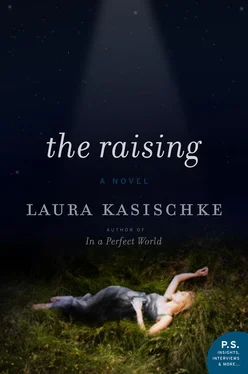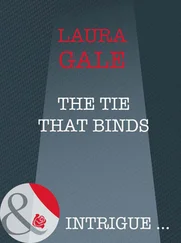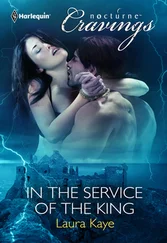Perry shook his head. “He smoked dope. A lot of dope. Probably other stuff, back in New Hampshire. I don’t know about her. I always thought she was against all that, but there were other things I thought about her that turned out to be wrong.”
He seemed disinclined to go on. He turned his face to the slushy scenery outside the passenger window, and put a hand against the dashboard, the heat vent. It couldn’t have been more than forty degrees in Jeff Blackhawk’s car, and Perry’s fingers were very white, the fingernails tinged with blue. Mira would have offered him the gloves she was wearing, but she was afraid that without them she’d be unable to drive.
“Zombie drugs,” Perry said after a long pause. He tucked his hands between his knees, paused again, and finally said, “All Craig can remember about the accident is what they told him, and what was in the reports: that Nicole was so badly injured and burned they could identify her only by the things she’d been wearing, and that he’d left the scene of the accident without bothering to try to help. That’s our exit.” He pointed to a green-and-white sign up ahead that read, BAD AXE.
Shelly’s answering machine was blinking so rapidly and chaotically that she didn’t bother to count the number of messages it must have recorded. She hit Play, and then she pulled a kitchen chair up next to the phone table, sat down, and began to unlace her boots.
“We know about you,” the first message said, followed by a beep. A young feminine voice. Not familiar, but not a total stranger’s, either. Shelly stopped unlacing the boot and put both feet next to each other on the floor.
“We know about you. You don’t know about us. We’re smarter than you think we are. You can’t trace these calls.”
An amused-sounding laugh, followed by a beep, and then:
“We’ve got a surprise for you. A whole bunch of surprises.”
Beep.
“Shelly? This is Rosemary. Are you okay there, honey? I felt so worried after our last talk. Things will get back to normal, I promise you, but how about, until things settle down, you come stay with us for a while? I told the kids I was inviting you, and they’re excited. Please?”
Beep.
“Surprise!”
But it was a different female voice this time. Lower. Sexier. Quieter.
Beep.
“Maybe you should have a look around your house. There’s a present for you. It’s in the bedroom. We know that’s where you like to get your presents.”
Shelly stood up.
Beep.
“That’s right. Go on. Go see for yourself.”
Beep.
“Hey, Shelly. Keep going.” Josie . Shelly couldn’t have proved it—too few words—but something about the cadence, the consonants pronounced at the very tip of the tongue against the teeth, seemed nauseatingly familiar.
Beep.
“Mee- owwww .” And then there was laughter, hysterical laughter, but Shelly was heading into the bedroom now, hurrying, that laughter pouring down on her like glassy rain.
Beep.
“Here kitty-kitty-kitty.”
Beep.
“You’re next, you bitch, if you don’t look out. I’d say it’s time you got out of town. And don’t think you can trace these calls, because the cops won’t be able to figure it out, and there’s no—”
But Shelly was screaming now, yanking on the rope that was strung from the light fixture over her bed and wrapped around her cat’s neck, pulling his limp body down, cradling him in her arms, screaming his stupid, silly name into his blank face with his black lolling tongue and his glass eyes staring intently at nothing at all.
Mr. Dientz remembered Perry from Cub Scouts. His own son was many years older than Perry, so they’d overlapped for only a year, but he gave Perry a hearty handshake and said, “Lord. What did your parents feed you, boy?”
Perry asked after Paul Dientz, who was in mortuary school in North Carolina, and then introduced Professor Polson. Mr. Dientz was obviously surprised, and not necessarily pleasantly so (a quick raising and lowering and raising of his very bushy gray eyebrows) to find that the professor was a woman. A young woman.
On the phone, he’d said, “Perry, since I know you, and since you say you’re doing this ‘research’”—the word had come out of his mouth like something from a foreign language—“I’m willing to indulge you and your professor, of course, and have I mentioned how impressed I am that you’re attending our state’s finest institution?”
Perry had assured him that he had.
“But it’s a part of my job I don’t relish. The reopening of old wounds, so to speak. Perry, it would amaze you to learn how many family members and friends in the weeks, months, years after a funeral—especially in the case of cremations and closed coffins—become convinced that there has been some case of mistaken identity. They think they’ve glimpsed a deceased brother or son or daughter on the street, or in a magazine, or they’ve gotten a hang-up call in the middle of the night—and, if they weren’t at the scene of the accident or the one to identify the body or if there were issues of identification, because many untimely deaths, Perry, let me be frank, leave behind corpses that do not resemble the living person—well, they can become fixated.
“Again, in the interest of ‘science,’ I am willing to meet with you and your professor and go over the record, but I must admit I can’t recall all the details, except of course the terrible tragedy of it, and, as I recall, the Werners did not take our recommendation to view the body. In the case of their lovely daughter, it would certainly have been horrific, but there’s really nothing better for a sense of finality, if you know what I mean, than to see the deceased with your own eyes.”
“Well, welcome,” Mr. Dientz said, sweeping his arm toward two plush red velvet armchairs across from his desk. “I’ve gone through my files, and as soon as you’re settled, I’d be happy to show you the reconstructive photographs.”
Perry had no idea what reconstructive photographs would be, but he did know, because Mr. Dientz had told him on the phone, that the funeral home kept a digital library of photos and information about their ‘clients.’ He would be showing them photographs of Nicole? Now? Perry looked toward the door, wondering if he could excuse himself for a moment, but Mr. Dientz wasted no time booting up his Mac, and turning the screen toward Perry and Professor Polson, so they could see.
“You may well ask yourself,” Mr. Dientz said, his voice shifting into the tone of a man on a radio commercial, clearly getting ready to say something he’d said a million times before but that still held meaning for him, “why it is we would spend the many hours we spend here at Dientz Funeral Parlor reconstructing the likenesses of decedents who have been disfigured by accidents or illness when, in fact, most funerals at Dientz Funeral Parlor are now closed-casket, and, in especially the most extreme cases, even family members will not be viewing the bodies ? ”
He looked at Perry and Professor Polson with rehearsed animation, as if gauging to what degree they had each been asking themselves this question.
“ Well , I answer you with an anecdote from my earliest years as a mortician,” Mr. Dientz went on. “A young man had been killed in a motorcycle accident. I won’t go into the details, but like your friend Nicole, identification was difficult. Injuries, burns, even dismemberment. Everyone in the family insisted, as so many so often do, that they only wished to remember their loved one ‘as he had been.’ Of course, someone had identified him at the morgue, but it was a distant relative, and the identification was done mostly from clothing and a ring. The family insisted that they didn’t want any kind of reconstruction, no embalming. They didn’t even care what the deceased would be wearing in his coffin.
Читать дальше












